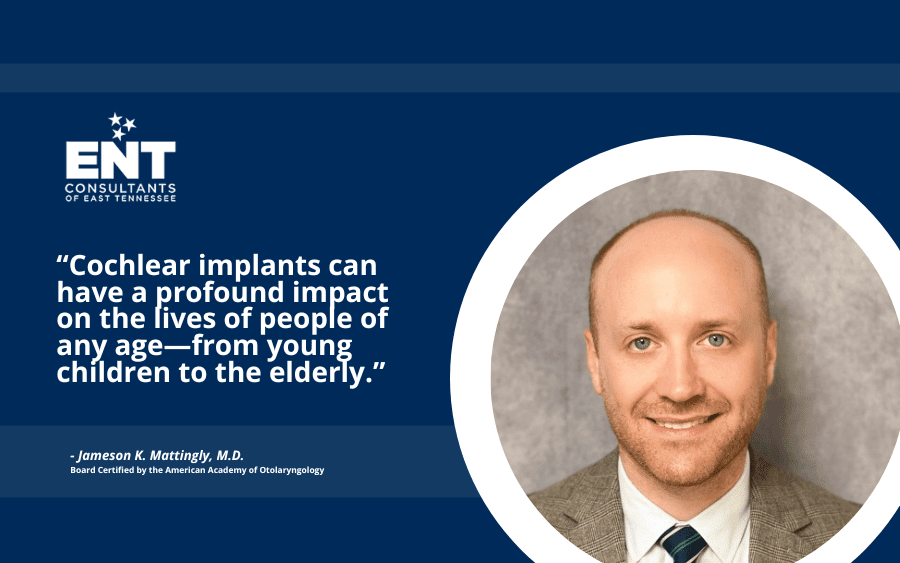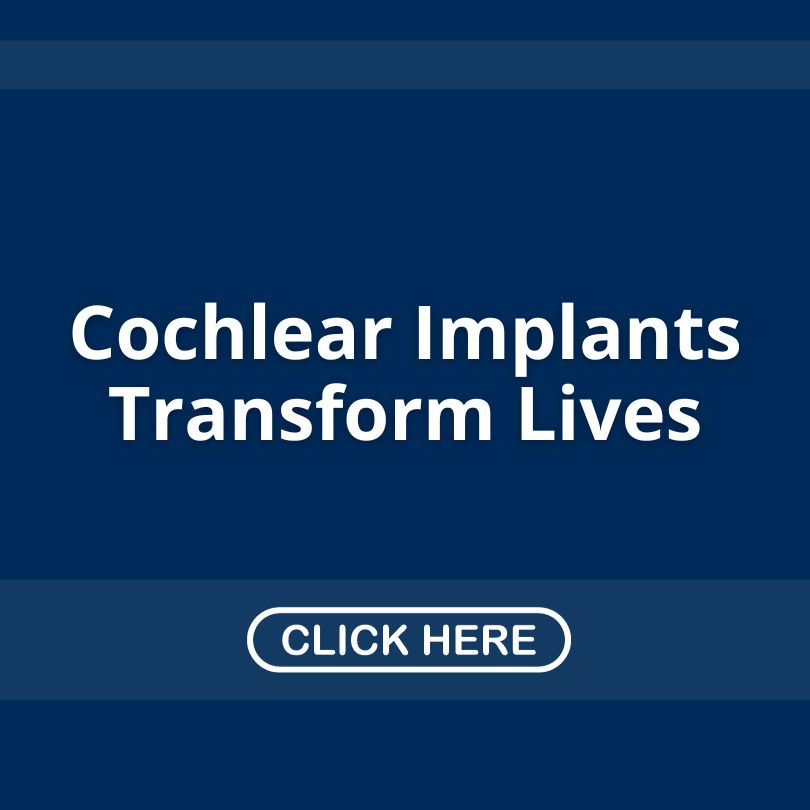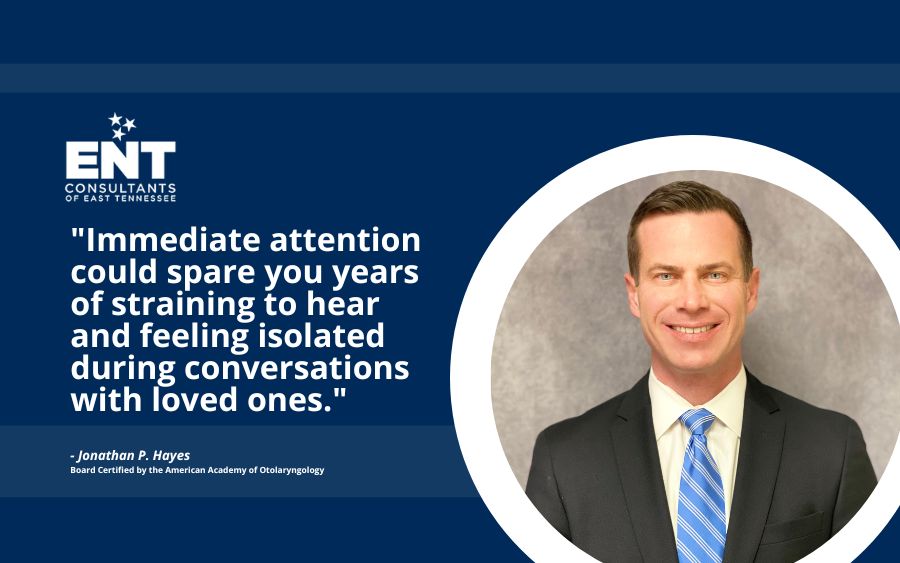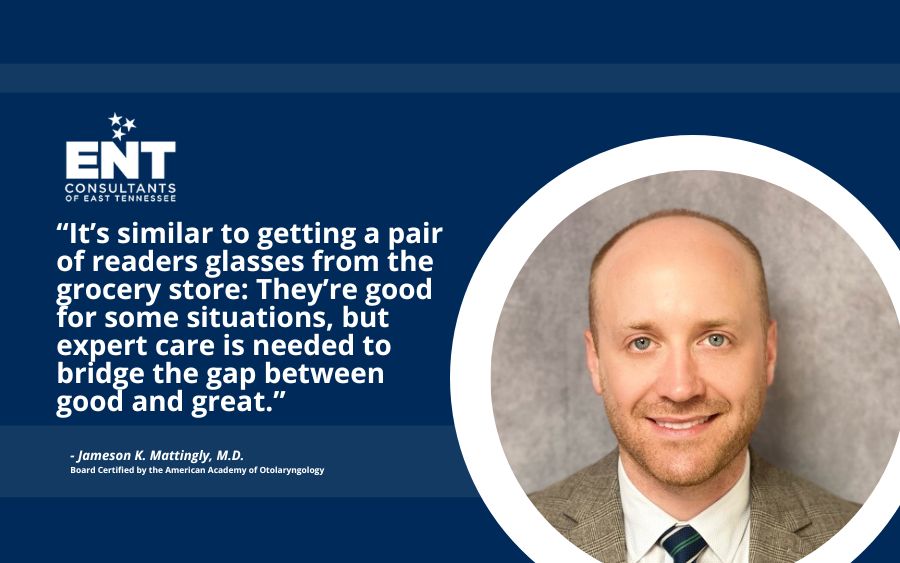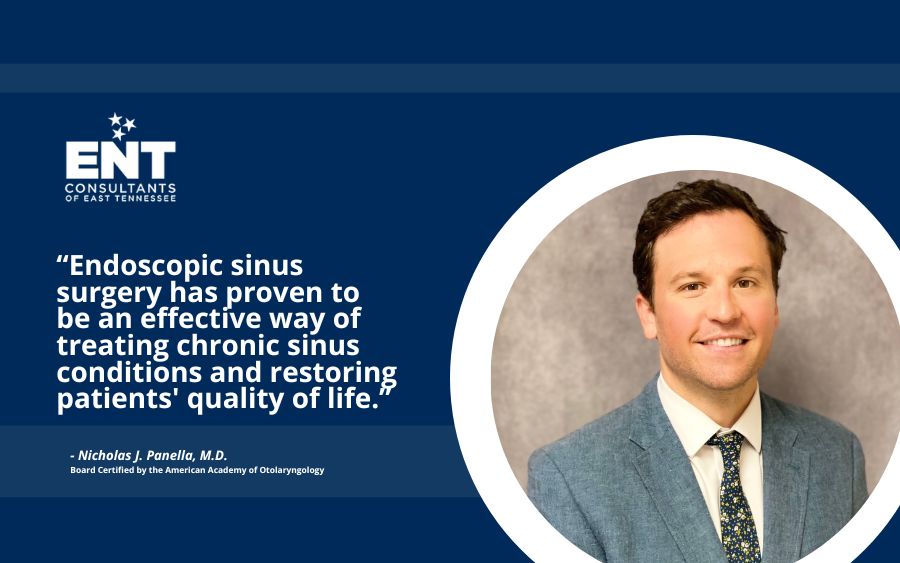Cochlear implants are vital in transforming the lives of many people suffering from severe cases of hearing loss. They can offer a renewed sense of hearing and a better quality of life to those who otherwise might experience silence for the rest of their lives.
These incredible devices can have a profound impact on the lives of people of any age—from young children to the elderly. They are a bridge to communication, education, social engagement, and a better quality of life. Let’s explore what cochlear implants are and how they may be able to provide hope for you or a loved one.
What Are Cochlear Implants?
Cochlear implants are small devices that are surgically implanted. They can help to provide a sense of sound to individuals with moderate to severe hearing loss.
Cochlear implants have an external component that sits behind the ear and an internal component that is surgically inserted under the skin. The device uses a small microphone to pick up sounds. Then, a speech processor arranges the sounds that are picked up by the microphone. The sound waves are captured and converted into electric impulses that are sent to the auditory nerve, where the brain interprets them as sounds.
Cochlear implants and hearing aids are not the same. While hearing aids amplify sounds, cochlear implants directly stimulate the auditory nerve.
Hearing Loss Across Generations
While it’s true that hearing loss is common among older adults, more and more children are experiencing hearing loss at a young age. According to the Centers for Disease Control and Prevention (CDC), one in eight children ages six to 19 already have hearing damage. The World Health Organization suggested recently that they expect the number of global hearing loss cases to double by the year 2050.
This is a real problem. The good news is that hearing technology has evolved over the years, and devices designed for children with severe hearing loss can help.
How Cochlear Implants Can Benefit Young Recipients
For children 18 months and younger, cochlear implants can provide the opportunity to learn sounds at an optimal time as they develop their language and communication skills. Because children with cochlear implants are able to hear and understand speech better, they benefit from better social integration and are able to do many of the things that children without hearing loss can do.
Cochlear implants can also give children the opportunity to succeed in the mainstream classroom environment, where they would otherwise struggle. This can lead to better academic performance, a sense of self-confidence, and a wider range of educational opportunities.
Aging and Hearing Loss
Hearing loss is an unfortunate side effect of growing older for many people. It can make communicating with friends and family quite difficult. When you can’t hear the world around you as well as you used to, even simple tasks like going to the grocery store can become challenging. No one wants to ask people to repeat themselves over and over.
Hearing loss can have a negative impact on you emotionally and mentally. It’s common for adults who lose their hearing to isolate themselves from others and become depressed and anxious, which can lead to physical sickness, too.
This is why it’s so important not to delay when it comes to treating hearing loss.
How Cochlear Implants Can Benefit Older Recipients
Many people associate cochlear implants with children, but they can also be beneficial to older adults when hearing aids are no longer enough.
Cochlear implants can greatly improve your ability to communicate with those around you, reducing feelings of social isolation. They can make older adults feel more comfortable participating in daily activities and engaging in hobbies, which leads to a better quality of life.
There’s also evidence that treating hearing loss in older adults can contribute to better cognitive health. Since the brain is kept engaged and active, the risk of dementia is lowered.
Cross-Generational Bonding
When someone—young or old—gets cochlear implants, the process often brings families and loved ones together. Others will be ready to offer support to the individual receiving the devices, to learn about the technology, and to celebrate milestones as they learn to hear with cochlear implants.
Cochlear implants can help families bridge communication gaps between the young and the old. Bonds can be strengthened through shared experiences, and new, lasting memories can be made.
Challenges and Considerations
While cochlear implants can be truly transformative, it’s important to note that getting used to hearing with cochlear implants takes some time and therapy. You won’t hear better overnight. Getting used to the devices can be a bit of an emotional roller coaster. And keep in mind that there is a bit of risk involved with any type of surgery.
Each person’s journey with cochlear implants is different, and some people will adjust to the devices more quickly than others. But when your brain finally learns to hear with the implants, it’s well worth the journey!
Looking Ahead
Cochlear implant technology has come a long way over the years. The devices have become more user-friendly and adaptable, and they even include features like wireless connectivity and smartphone apps. They can offer transformative benefits for people of all ages, and research is being done to continue to improve their effectiveness.
Not all individuals are a fit for cochlear implants, however. A thorough medical evaluation is required to determine whether cochlear implants are suited for an individual’s needs and concerns.
For the right candidate suffering from severe hearing loss, cochlear implants are a beacon of hope. They have the power to transform lives, from the youngest recipients who gain access to education and social interaction to the elderly who rediscover the joys of hearing and connection with loved ones.
If you or a loved one is experiencing severe hearing loss and would like to be evaluated for cochlear implants, our team can help. Contact us at 865-693-6065 or schedule an appointment here.

